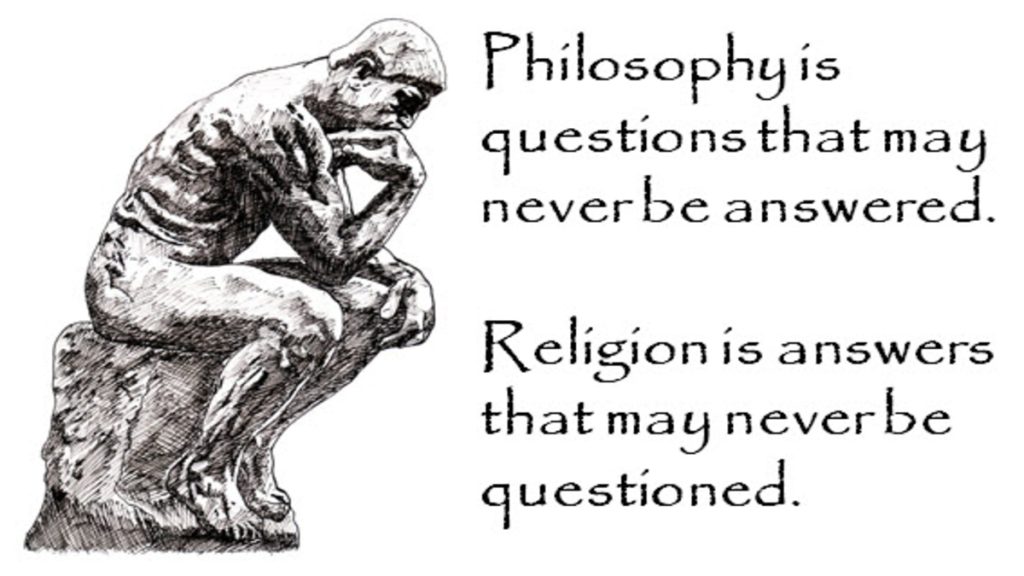When looking for meaning in the world, people often turn to philosophy or religion. Both of these studies strive to understand many of the same ideas: Where did we come from? What is the meaning of life? What does it mean to be “good” or “bad”? What happens after we die? Yet they take different approaches and often come to very different conclusions.
Because religion and philosophy both tackle some of the same ideas, these studies do have a certain amount of overlap. Some people have different ideas about where the dividing lines are between religion and philosophy. Others use the terms interchangeably without realizing that there are any differences at all.
Yet there are fundamental differences when it comes to how religions and philosophies try to understand the same (or similar) subject matter.
Religion
When religion strives to understand the nature or purpose of human existence and the universe around us, it finds answers through its own dogma and the authority of its own leaders. The answers are commonly obtained through a supernatural process (e.g. prophets, inspired scriptures, signs or miracles), and religions generally involve worshiping a higher being or creator.
Followers of a religion may see their beliefs as “truth,” however, it is generally agreed that these beliefs are a matter of faith. It is “true” because they have faith in the messages from their supernatural god (or gods).
Religions also have set rituals. They commonly have regular church services, celebrate holidays (Holy days) to commemorate special events, and practice certain behaviors (e.g. crossing themselves in front of holy items, wearing special clothing or praying at certain times of day).
Philosophy
Instead of being centered on faith, philosophy involves the rational pursuit of knowledge and a general understanding about the nature and purpose of the universe. There are distinct branches of philosophy including natural philosophy, moral philosophy, metaphysical philosophy and political philosophy.
Philosophers look for knowledge primarily through questions and observations. Their theories may be based on the work of earlier philosophers, but previous theories are always open to new interpretations, refinement or outright contradiction. It could be said that while religion provides dogmatic answers, philosophy provides provocative questions.
Philosophy is arguably more about discovering knowledge than accepting the word of an authority figure or supernatural god. Although, philosophy can be based on religious assumptions, and philosophical ideas about religion are commonly explored through metaphysical philosophy.
While there are many established philosophies (e.g. existentialism, rationalism, empiricism, solipsism or idealism) which can shape an adherent’s way of life, they are not the same as religious sects. There are no set rituals, holy days or prescribed behaviors. Plato, Aristotle, Descartes, Kant, Hegel, Kierkegaard, Sartre and other philosophers may be held in high-regard, but they are considered to be men–not prophets.
When having philosophical or religious discussions, people often forget that there are basic differences between the two studies. Certain topics, such as morality or creation, can easily veer into either philosophical or religious realms. This can lead to misunderstandings when those in the discussion don’t realize that they are standing on different ground.
Perhaps one of the first steps to understanding the views of others is to realize that these are two different approaches to understanding life. Philosophy can exist without religion, just as believers do not have to consider the philosophy behind their faith in order to be considered religious.
OTHER RELATED POSTS
